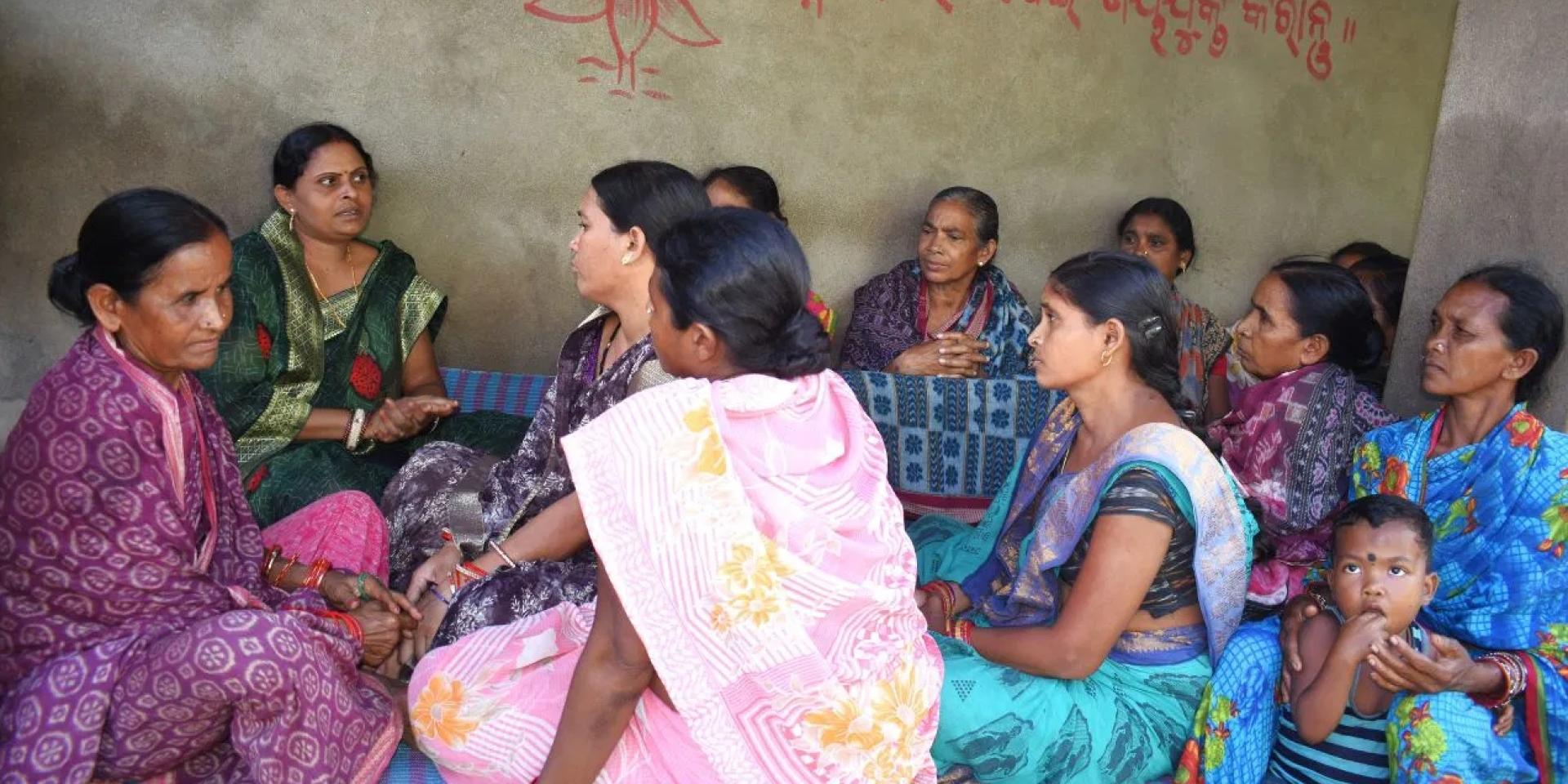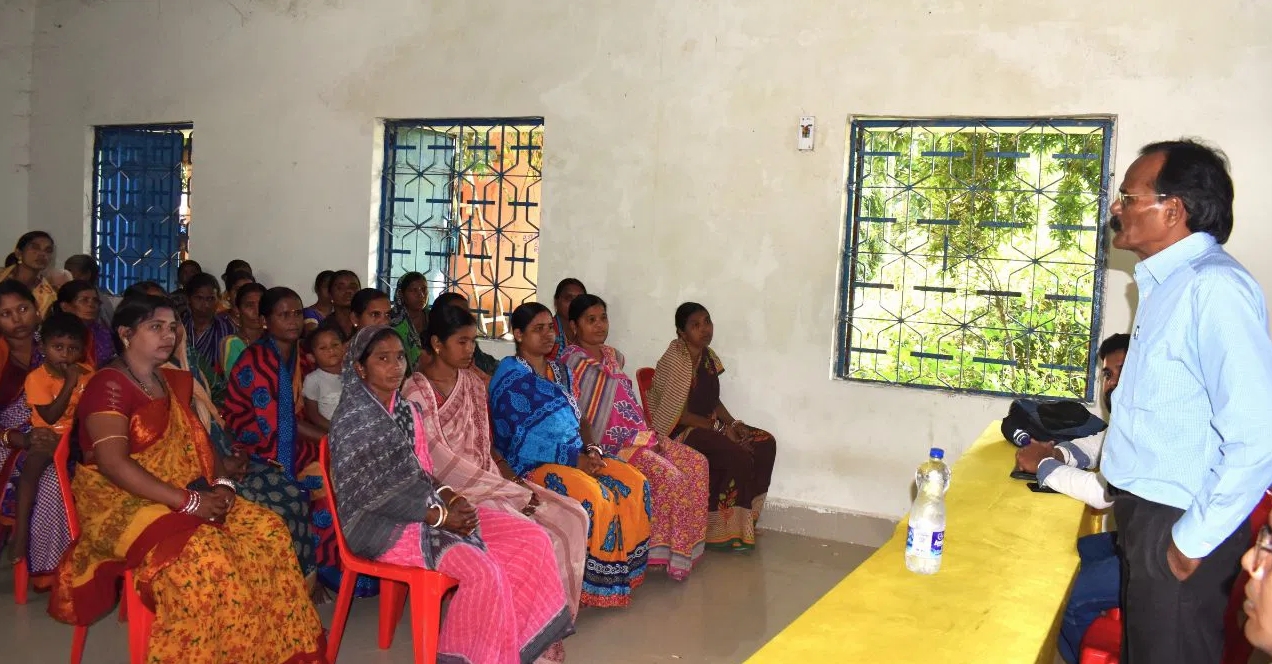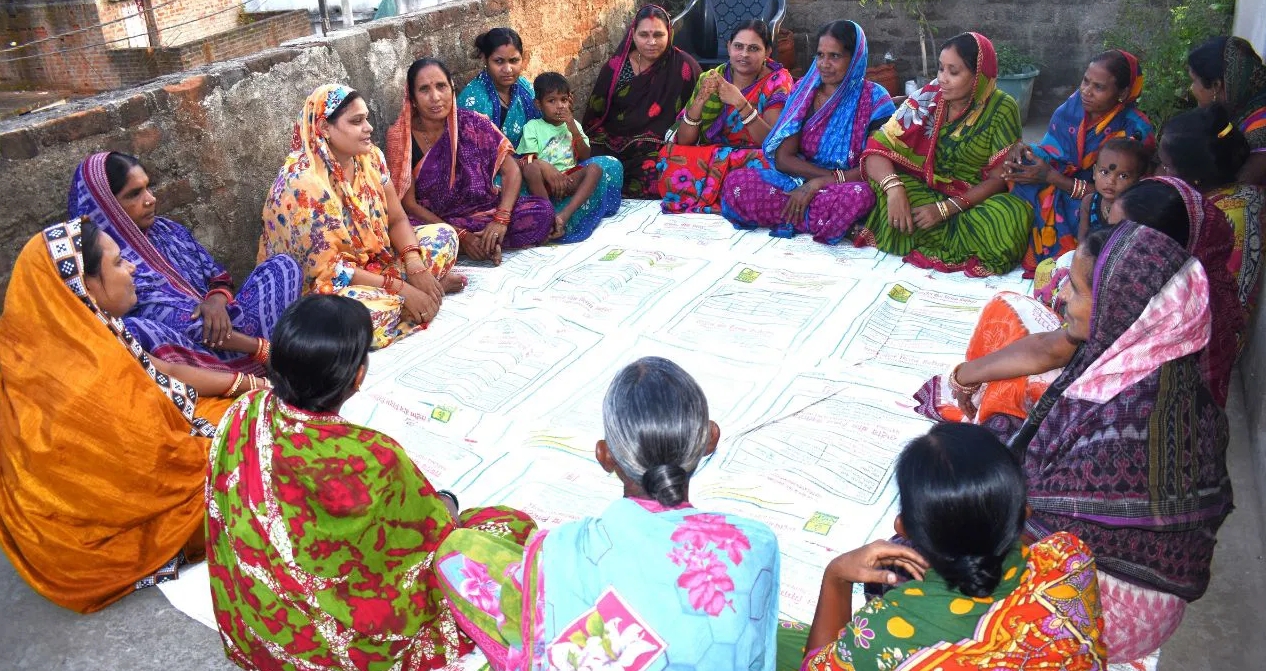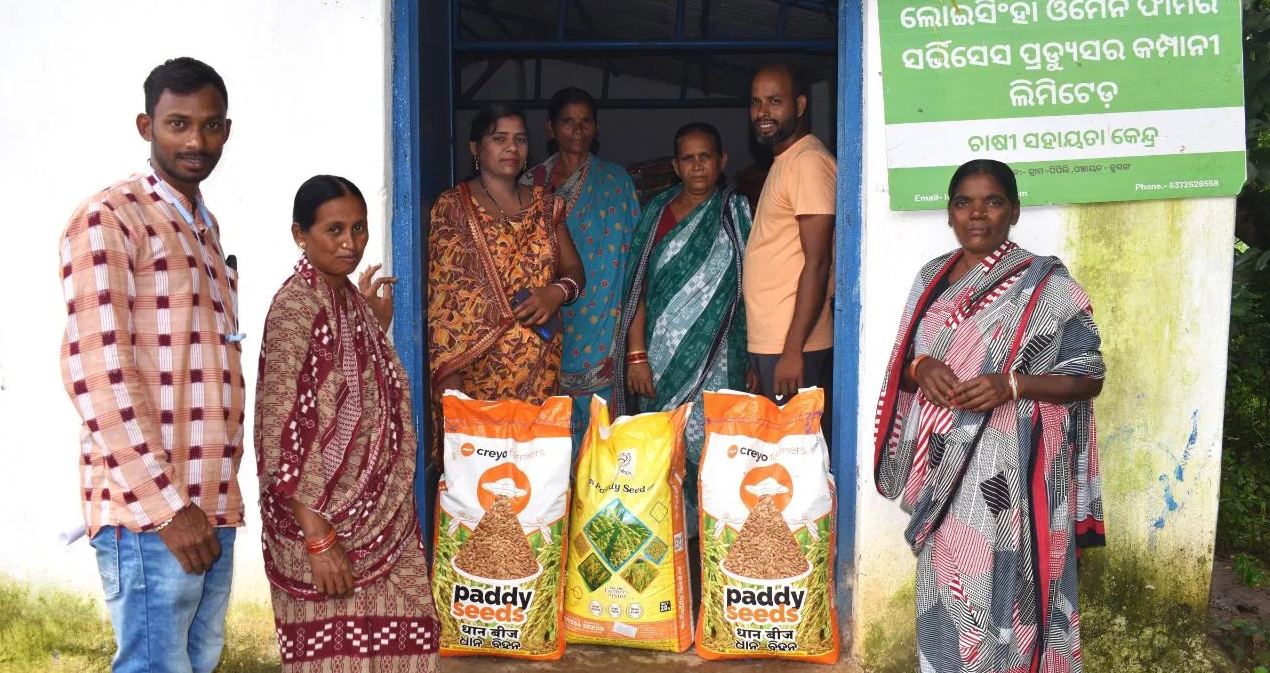Breaking Barriers: How Women-Led Farmer Producer Companies Are Changing Agriculture in Odisha
 Photo: Devi Prasad Mahapatra
Photo: Devi Prasad Mahapatra
This blog post was authored by Devi Prasad Mahapatra as part of the CGIAR GENDER Impact Platform training on telling stories about agricultural solutions that work for women. This training took place online between September and December 2024. This story was first published by krishijagran.com, and is reposted in full below.
Women-led Farmer Producer Company (W-FPC) initiative in Odisha trains women farmers in advanced practices, enabling them to produce quality seeds, access markets, and take control of farming decisions, fostering equity and resilience in agriculture.
"As far back as I can remember, my family has always been into farming. After I got married and moved to my in-laws' home, I’ve been involved in every activity of paddy cultivation, from sowing to harvesting. Yet, no one asks for my input on crucial farm decisions," said Mukta Gadatya, a woman farmer from Pipili village in Odisha’s Balangir district.
"We do almost everything all season long, but when it comes to the big decisions like what seeds to buy, how to manage the money, or how to sell the crops, we’re hardly ever asked."
Mukta’s story reflects that of millions of women—who comprise 80% of India’s agricultural workforce—facing limited bargaining power, limited access to technology and information, and economic hurdles in adopting advanced farming practices.
Addressing Challenges Requires Women-Focused Solutions
A major challenge is women’s limited bargaining power, which restricts their access to quality input, output market and fair prices for their produce. Additionally, financial constraints and a lack of knowledge prevent the women from adopting advanced agricultural technologies that could boost their productivity.
Mohammad Sultan, Associate Scientist for Agribusiness and Entrepreneurship Development at the International Rice Research Institute, puts it simply: “The biggest problem for smallholder women farmers is the lack of information and knowledge. They don’t know much about high-yield or stress-tolerant seed varieties, or good farming practices. On top of that, they don’t have easy access to lightweight, portable machines.” Sultan adds that IRRI’s goal is to work with women to provide access to best practices, improve farming skills, and collaboratively find better ways to sell their produce.
To address these challenges, researchers are focused on developing targeted, gender-responsive solutions that improve access to resources, build skills, and enhance market services. These efforts aim to enable women farmers to increase productivity and build more resilient, sustainable agri-food systems.
Involving Women in Seed Production Through Collective Efforts
The collective action model, demonstrated by the women-led Farmer Producer Company (W-FPC) initiative of the International Rice Research Institute (IRRI) in Balangir, Odisha, empowers smallholder women farmers to engage in quality seed production and adopt improved farming practices.
Currently, seed production in Odisha is managed by government agencies and some private players. Farmers cultivate 35 lakh hectares each season, but only 20% of the seed requirement is met by these agencies. As a result, farmers repeatedly use farm-saved seeds. The grain kept for seeds deteriorates in quality over time for several reasons, reducing subsequent yield. Consequently, new varieties are not adopted, especially by smallholder farmers.
"Seeing the potential for producing new seed varieties locally shows the need to decentralize the seed-production system. This way, seeds can be produced and used locally, ensuring farmers get the right variety at the right time,” said Dr. Mukund Variar, the State Coordinator of IRRI Odisha office.
“Involving women in seed production through a collective process is a win-win because they've been growing paddy for years. With some knowledge and skills, they can produce, maintain, and provide seeds to farmers."
IRRI incubated a multi-product, multi-service W-FPC (called Loisingha Women Farmers Services Producer Company Limited (LWFSPCL)) with more than 1350 members and with a primary emphasis on certified seed production and marketing—along with other agricultural allied services.

Women undergo season-long training on high-yielding seeds, improved farming practices, nutrient management, and the use of tools and machinery.
Bringing Training Closer to Home for Women in Farming and Caregiving
The women receive season-long training on a wide range of topics, from high-yielding, stress-tolerant seeds to improved agricultural practices, integrated nutrient management, and the use of tools and machinery for different activities.
“We choose the place and time for this training very carefully,” said Sultan. “Since these farmers have household work and responsibilities, such as taking care of young children and the elderly, they can’t travel far from the village or stay away from home for too long. So, we organise the training close to their homes and schedule it for times when they are free after finishing their household tasks.”
This approach ensured that almost all the members participated in these training programs with great interest. As a result, the W-FPC trained women members in paddy seed production, making them aware of the local climate and high-yielding paddy varieties. Today, they cultivate stress-tolerant rice varieties like MTU1224, BINA Dhan 11, BB11, and CR312, which provide better yields and are more drought-resistant. IRRI helps the W-FPC obtain the breeder or foundation seeds suitable for local agro-climatic conditions. These seeds are then multiplied and sold as certified or truthfully labeled (TL) seeds to farmers and companies.
“To keep the business going strong, we make an effort to involve women farmers all year round by encouraging them to grow different crops and take up other activities,” said Dr. Variar. “Besides producing paddy seeds, we help them learn how to grow seeds or grains of pulses and oilseeds, so they can use it for their consumption and also sell them in the market.”

W-FPC model addresses the challenges faced by women in agriculture by promoting collective action among women farmers.
Overcoming the Challenge of Securing the Right Seeds at the Right Time
Related to the challenges of getting new variety seeds, Jyoti said that obtaining new varieties of seeds on time is a major challenge in rural areas: “.”Finding them in our village was impossible. Although we can get seeds in the nearby town or block office, it was difficult for the women to leave their homes and go there. The only option was to depend on the men in the family, as before
As a solution, the W-FPC opened three farmer service centres which are hubs. There, women farmers can access quality inputs (seeds, fertilisers and biopesticides), extension services (custom recommendations based on crop, pest and disease management, and weather advisories) and also the procurement and aggregation center for seed and grain.
Women's Control Over Post-Harvest Income Benefits Farms and Families
Researchers already knew that access to finance is essential for empowering women farmers in decision-making. In many farming households, financial control often rests with men farmers after the harvest. Men typically handle the sale of produce in the market and manage the income generated, often making decisions about how the money is spent or reinvested.
This dynamic can limit women’s involvement in key financial decisions, even when they contribute significantly to the farming process. However, points out Sultan, the W-FPC helps women access the market by collaborating with institutional buyers. Through collectivization, the W-FPC procures certified and TL seeds from smallholder women farmers and transfers the money to their accounts within a week or two.
When women take control of post-harvest finances, it often leads to more equitable allocation of resources. Women are more likely to prioritize household needs such as education, healthcare, and nutrition, ensuring that the benefits of farming extend to the entire family.
Empowering women with financial control post-harvest not only improves gender equity, but contributes to the overall well-being of farming communities.

W-FPC empowers women by connecting them with institutional buyers in the market.
Collective and Collaborative Action by Women, for Women
The W-FPC model addresses the challenges faced by women in agriculture by promoting collective action among women farmers. Dr. Mukund highlighted the three key components: “First, by collective resources, women farmers can purchase high-quality seeds, fertilizers, and equipment, which not only reduces costs, but also ensures that all members have access to the necessary inputs for successful farming.”
“Second, the W-FPC provides training on improved farming practices and the use of modern technologies, enhancing the women’s knowledge and skills and enabling them to adopt more efficient and sustainable agricultural methods.”
“Third, the collective strength of the W-FPC enhances the bargaining power of women farmers, allowing them to negotiate better prices for their produce and secure more favorable terms in the market,” he said.
This collective action model both increases women’s knowledge of better skills and technologies, and strengthens their agency in their communities. "Before we started working with FPC, we were just following orders for different tasks in paddy farming. But now, we're actually part of the conversation about which seeds to sow, what pesticides to use, where to get inputs, and where to sell our crops,” said Mukta.
“In just two years, we have seen a big change in how we make decisions about farming. The knowledge we have gained from FPC is not only helping us make better choices but also enhancing our confidence and influence in our families and community.”
The W-FPC demonstrates how multidimensional collaborative efforts can transform the agrifood system, making it more inclusive and resilient.